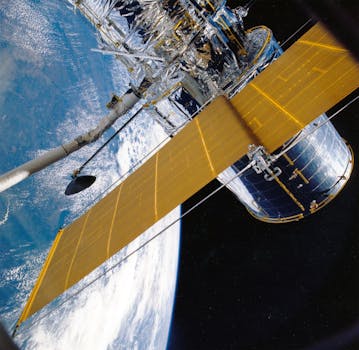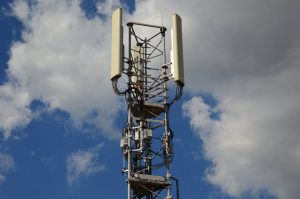
Future of Satellites: Revolutionizing Global Communication and Exploration
The future of satellites is rapidly evolving, with advancements in technology and innovation leading to improved global communication, space exploration, and earth observation. Satellites have been a crucial part of our daily lives, providing us with navigation, communication, and weather forecasting. As we move forward, the role of satellites will become even more significant, enabling us to explore space, monitor the environment, and connect with each other like never before.
One of the most significant developments in the future of satellites is the emergence of small satellites, also known as CubeSats. These tiny satellites, which are typically the size of a shoebox, are designed to be more affordable, flexible, and efficient than traditional satellites. Small satellites are being used for a variety of applications, including earth observation, communication, and space exploration. They are also being used to test new technologies and to provide opportunities for students and researchers to gain hands-on experience with satellite development and operation.
Another area of advancement in the future of satellites is the development of satellite constellations. These constellations are networks of satellites that work together to provide global coverage and continuous service. Satellite constellations are being used for a range of applications, including communication, navigation, and earth observation. They are also being used to provide internet connectivity to remote and underserved areas, helping to bridge the digital divide and promote economic development.
In addition to small satellites and satellite constellations, the future of satellites will also be shaped by advancements in propulsion technology. New propulsion systems, such as electric propulsion and advanced ion engines, are being developed to enable satellites to travel farther and faster than ever before. These advancements will enable satellites to explore deeper into space, to visit other planets and celestial bodies, and to conduct more complex and sophisticated scientific experiments.
The future of satellites will also be influenced by the growing demand for satellite-based services. As the world becomes increasingly dependent on satellite technology, the demand for satellite-based services, such as communication, navigation, and earth observation, will continue to grow. This will drive the development of new satellites and new technologies, and will create new opportunities for businesses, governments, and individuals to use satellite technology to improve their lives and to achieve their goals.
In conclusion, the future of satellites is exciting and rapidly evolving. With advancements in technology and innovation, satellites will play an increasingly important role in global communication, space exploration, and earth observation. As we move forward, we can expect to see new and innovative applications of satellite technology, and we can expect to see satellites become an even more integral part of our daily lives.
The development of satellites has also led to the creation of new industries and job opportunities. The satellite industry is a rapidly growing sector, with new companies and startups emerging all the time. This industry provides a wide range of job opportunities, from engineering and manufacturing to operations and management. The satellite industry also supports a wide range of other industries, including telecommunications, navigation, and earth observation.
Furthermore, the future of satellites will also be shaped by the growing importance of space exploration. As we continue to explore and understand the universe, satellites will play a critical role in helping us to achieve our goals. Satellites will be used to study the universe, to search for new planets and celestial bodies, and to conduct scientific experiments. They will also be used to support human spaceflight, providing communication, navigation, and other essential services to astronauts and cosmonauts.
The use of satellites in space exploration will also raise important questions about the long-term sustainability of space activities. As we continue to launch more and more satellites into space, we will need to develop new technologies and strategies to manage the growing amount of space debris. We will also need to develop new international agreements and regulations to govern the use of space and to prevent conflicts and collisions.
Despite these challenges, the future of satellites is bright and exciting. With ongoing advancements in technology and innovation, satellites will continue to play an increasingly important role in our daily lives. They will provide us with new and innovative services, they will help us to explore and understand the universe, and they will support a wide range of industries and applications.
In the next section, we will explore the current state of satellite technology and the latest developments in the field.
The current state of satellite technology is highly advanced, with a wide range of satellites and satellite systems in operation. These satellites are used for a variety of applications, including communication, navigation, earth observation, and space exploration. They are also used to support a wide range of industries, including telecommunications, transportation, and finance.
One of the most significant advancements in satellite technology is the development of high-throughput satellites. These satellites are designed to provide high-speed internet connectivity to remote and underserved areas, and they are being used to bridge the digital divide and promote economic development. High-throughput satellites are also being used to support a wide range of other applications, including communication, navigation, and earth observation.
Another area of advancement in satellite technology is the development of satellite-based earth observation systems. These systems are designed to provide high-resolution images of the earth, and they are being used for a wide range of applications, including environmental monitoring, disaster response, and crop management. Satellite-based earth observation systems are also being used to support a wide range of other industries, including agriculture, forestry, and urban planning.
The development of satellite technology has also led to the creation of new industries and job opportunities. The satellite industry is a rapidly growing sector, with new companies and startups emerging all the time. This industry provides a wide range of job opportunities, from engineering and manufacturing to operations and management. The satellite industry also supports a wide range of other industries, including telecommunications, navigation, and earth observation.
In the final section, we will explore the potential applications and benefits of satellite technology in the future.
The potential applications and benefits of satellite technology are vast and varied. Satellites will continue to play an increasingly important role in global communication, space exploration, and earth observation. They will provide us with new and innovative services, they will help us to explore and understand the universe, and they will support a wide range of industries and applications.
One of the most significant benefits of satellite technology is its ability to provide global coverage and continuous service. Satellites are able to operate in remote and underserved areas, providing communication, navigation, and other essential services to people and communities around the world. They are also able to support a wide range of industries, including telecommunications, transportation, and finance.
Another benefit of satellite technology is its ability to support space exploration and the search for new planets and celestial bodies. Satellites will be used to study the universe, to search for new planets and celestial bodies, and to conduct scientific experiments. They will also be used to support human spaceflight, providing communication, navigation, and other essential services to astronauts and cosmonauts.
In conclusion, the future of satellites is exciting and rapidly evolving. With advancements in technology and innovation, satellites will play an increasingly important role in global communication, space exploration, and earth observation. As we move forward, we can expect to see new and innovative applications of satellite technology, and we can expect to see satellites become an even more integral part of our daily lives.





